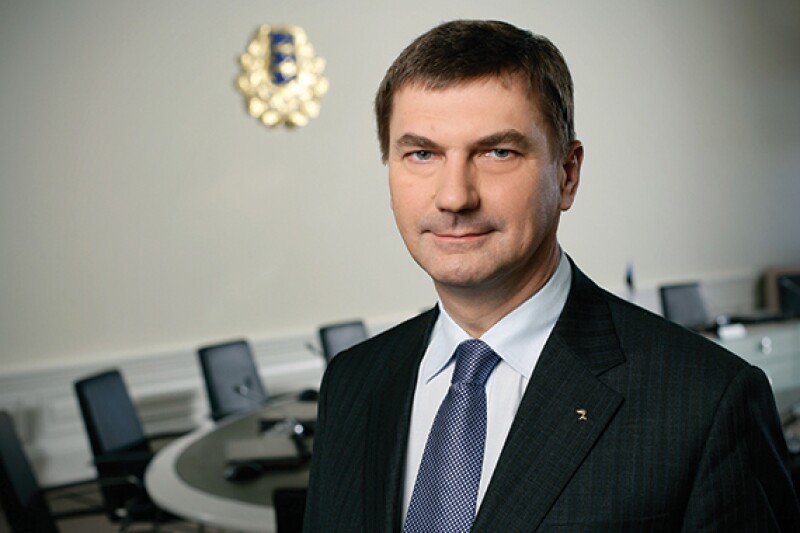
|
The Estonian presidency of the Council of the European Union is a new entry this year |
Estonia picked up the baton of the EU presidency from Malta in July this year, and has worked hard towards establishing clearer tax systems for VAT and the digital economy. The Council of the European Union negotiates and adopts new legislation, which means that anything on the Estonian presidency's agenda could have a big impact on all EU member states.
Building upon Estonia's experience as a highly digitalised nation, one of the Estonian presidency's key aims has been to create an open and innovative European economy. The Estonian presidency is working closely with Bulgaria and Austria, who will hold the next two terms of the presidency, respectively, to use digitalisation to build a better society for Europeans. This also transfers to taxation. Discussions on how to tax the digital economy have been central to the debate on fair taxation in the EU, and the Estonian presidency is gathering opinions from the public and multinationals on how to best tackle these issues.
"Ultimately, the Commission's preferred solution is to reform the international corporate tax framework to ensure the consistency and coherence of tax rules worldwide, and ensure stability and certainty for businesses," Andrus Ansip (pictured), European Commission vice-president for the digital single market and former Estonian prime minister, tells International Tax Review. "The EU expects meaningful progress in the global agenda and should push for this to be reflected in the OECD report to the G20 finance ministers at their meeting in April 2018."
The presidency has also driven forward EC proposals for reform of the current VAT rules for online sales. The EC said this autumn that more than €150 billion ($177 billion) of VAT revenue was lost in 2015 because of fraud and outdated rules.
"Twenty-five years after the creation of the single market, companies and consumers still face 28 different VAT regimes when operating cross-border," said Pierre Moscovici, European commissioner for economic and financial affairs, taxation and customs. "This anachronistic system based on national borders must end. Member states should consider cross-border VAT transactions as domestic operations in our internal market by 2022. [The proposal] will make life easier for EU companies trading across borders, slashing red tape and simplifying VAT-related procedures."
Ansip says the proposed VAT system would have huge benefits for small businesses and bring back "much-needed" revenues to government coffers, adding that he hopes member states would come to a final agreement by the end of 2018.
Some heated discussions have taken place during Estonia's presidency, including on the equalisation tax, which Italy looks likely to implement. The proposal, brought forward by France and backed by a number of other jurisdictions at an ECOFIN meeting in Tallinn in September, would tax the revenue instead of the profits of certain companies. But while a public consultation that covers the equalisation tax as well as other proposals is ongoing, it seems the Estonian presidency has its heart set on the common consolidated corporate tax base (CCCTB) – building on work done by previous EU presidency holders Malta (see page 46) as a solution for fair taxation of the digital economy.
"We may be able to use the framework of the CCCTB to launch a debate on how to modernise the corporate income tax rules in a way that would take into account the new business models using digital technology," Ansip says. "At the EU level, the CCCTB proposal offers a basis to address key challenges, and we expect member states to agree on this in the near future. The EC will continue to analyse the alternative policy options and consult with relevant stakeholders and industry representatives, and stands ready to present the appropriate legislative proposals."
Ansip tells ITR that the EU has a strong agenda to boost investment, complete the digital single market, and help EU companies grow into global leaders.
"To deliver on this ambition, the EU needs a modern and stable tax framework for the digital economy to stimulate innovation, tackle market fragmentation and allow all players to operate under fair and balanced conditions," he says.
The Estonian presidency will conclude at the end of 2017, but through its presidency trio with Bulgaria and Austria, its agenda will continue to be represented in 2018.
The Global Tax 50 2017 |
|
|---|---|
The top 10 • Ranked in order of influence |
|
6. Arun Jaitley |
|
The remaining 40 • In alphabetic order |
|
| The Estonian presidency of the Council of the European Union |
|
| International Consortium of Investigative Journalists (ICIJ) |
|
| United Nations Committee of Experts on International Cooperation in Tax Matters |
|









